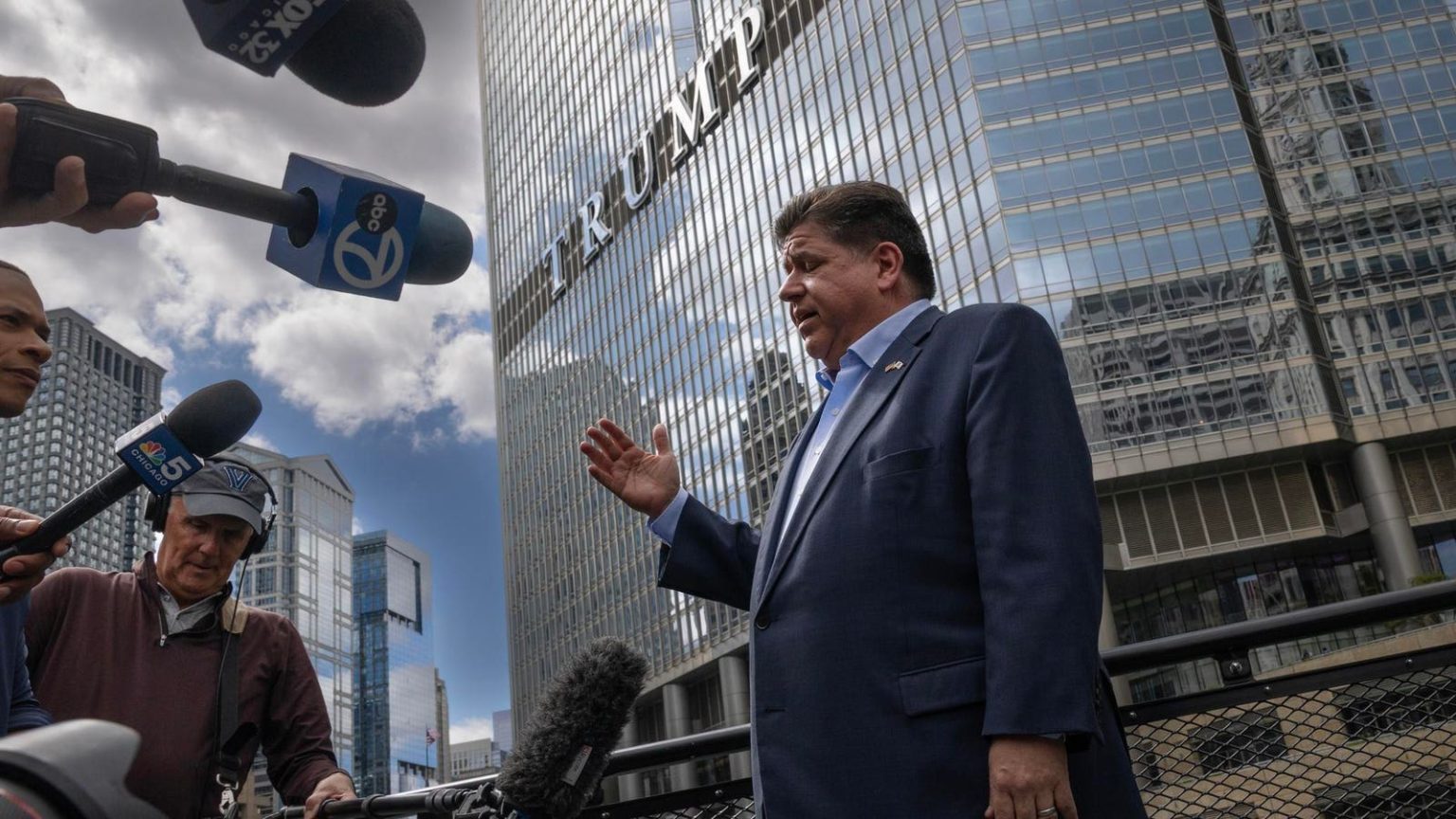Trump Administration Plans Immigration Crackdown in Chicago Amid National Guard Speculation
A Looming Enforcement Operation
The Trump administration appears to be setting its sights on Chicago as the next target for increased immigration enforcement, according to recent statements from administration officials and sources familiar with the planning. Former ICE Director Tom Homan, now serving as “border czar” in the Trump administration, confirmed this direction during a press briefing last Thursday, stating plainly: “Operations are ramping up across the country, but you can see a ramp up of operations in Chicago, absolutely.” Homan indicated that Immigration and Customs Enforcement would intensify operations not only in Chicago but in other sanctuary cities as well, suggesting a broader strategy targeting jurisdictions that limit cooperation with federal immigration authorities. While the exact scale and timing of these operations remain unclear, sources have told CNN that a major enforcement action could begin as early as next week.
Military Support Requests Raise Questions
Signs of preparation for a significant operation have already emerged, with the Department of Homeland Security reaching out to Naval Station Great Lakes, a military installation located just north of Chicago. According to a spokesperson for the base who spoke to the Associated Press, DHS has requested “limited support in the form of facilities, infrastructure, and other logistical needs.” However, the spokesperson clarified that the base has not received any formal request to support a National Guard deployment—a crucial distinction given President Trump’s recent public statements about possibly sending National Guard troops to Chicago. This preliminary outreach to military facilities suggests the administration is at minimum establishing the groundwork for expanded enforcement capabilities in the region, regardless of whether National Guard deployment ultimately materializes.
Local Officials Left in the Dark
Chicago’s leadership has expressed frustration at the lack of official communication from the federal government regarding potential National Guard deployment or expanded immigration operations. Mayor Brandon Johnson and Chicago Police Superintendent Larry Snelling confirmed during a Thursday press conference that they had received no direct information from the Trump administration about such plans, despite the president’s public statements suggesting Chicago would be “probably next” for military deployment. Despite being kept in the dark, city officials indicated they are preparing for possible protests in response to any federal actions, with Snelling noting they would maintain adequate “manpower” to address potential demonstrations. The absence of coordination between federal and local authorities raises concerns about how any operation would unfold on the ground in one of America’s largest cities.
Limited Presidential Authority Outside D.C.
The legal pathway for Trump to deploy troops to Chicago differs significantly from the recent actions taken in Washington, D.C. Earlier this month, the administration took control of D.C.’s Metropolitan Police Department and deployed National Guard troops, citing crime concerns that Trump characterized as making the capital “one of the most dangerous cities anywhere in the World.” However, this maneuver was possible due to unique provisions in D.C.’s Home Rule Act that don’t apply to other cities. For Chicago, the president cannot simply take over the police department, and any National Guard deployment would face stricter limitations. While Trump could potentially invoke the Insurrection Act to deploy military personnel, such forces would have restricted law enforcement authority. A more recent precedent was established in June when Trump deployed approximately 4,000 National Guard troops and 800 Marines to Los Angeles, ostensibly to protect federal property during protests against ICE operations—though in that case, he did not invoke the Insurrection Act.
Disputed Crime Narratives
The administration’s justification for targeting Chicago centers on crime statistics, but local officials strongly dispute this characterization, pointing to significant improvements in public safety metrics. According to data from Mayor Johnson’s office, violent crime in Chicago has decreased by 21% year-to-date, including a 33% reduction in homicides. This contradiction in narratives has fueled political tension, with Illinois Governor J.B. Pritzker offering perhaps the most direct rebuke to the president: “Mr. President, do not come to Chicago. You are neither wanted here nor needed here.” Pritzker, a Democrat sometimes mentioned as a potential future presidential candidate, went further in questioning Trump’s mental fitness, stating that the president’s “remarks about this effort over the last several weeks have betrayed a continuing slip in your mental faculties, and are not fit for the auspicious office that you occupy.” This stark divide in perspectives highlights the intensely political nature of the administration’s focus on Chicago.
A Pattern of Targeting Chicago
Chicago’s selection for enhanced enforcement appears to continue a pattern established early in Trump’s presidency. Homan himself noted during Thursday’s press briefing that Chicago was one of the first cities targeted for immigration operations after Trump took office in January. “When this administration first came to power, Brandon Johnson, the mayor there, he said I wasn’t welcome in Chicago,” Homan recounted. “Where was I the first day? Chicago.” This history suggests Chicago holds symbolic importance in the administration’s immigration enforcement strategy. While primarily discussing immigration matters, Homan also voiced support for the military’s role in D.C. law enforcement, calling it a “great success” and endorsing the president’s approach of sending troops to “cities that have a high crime rate.” However, he stopped short of specifying future National Guard deployment locations, stating, “I won’t get ahead of the president in where we go next.” As Chicago braces for potential federal action, the coming days may reveal whether the administration pursues immigration enforcement alone or attempts the more controversial step of military deployment.


